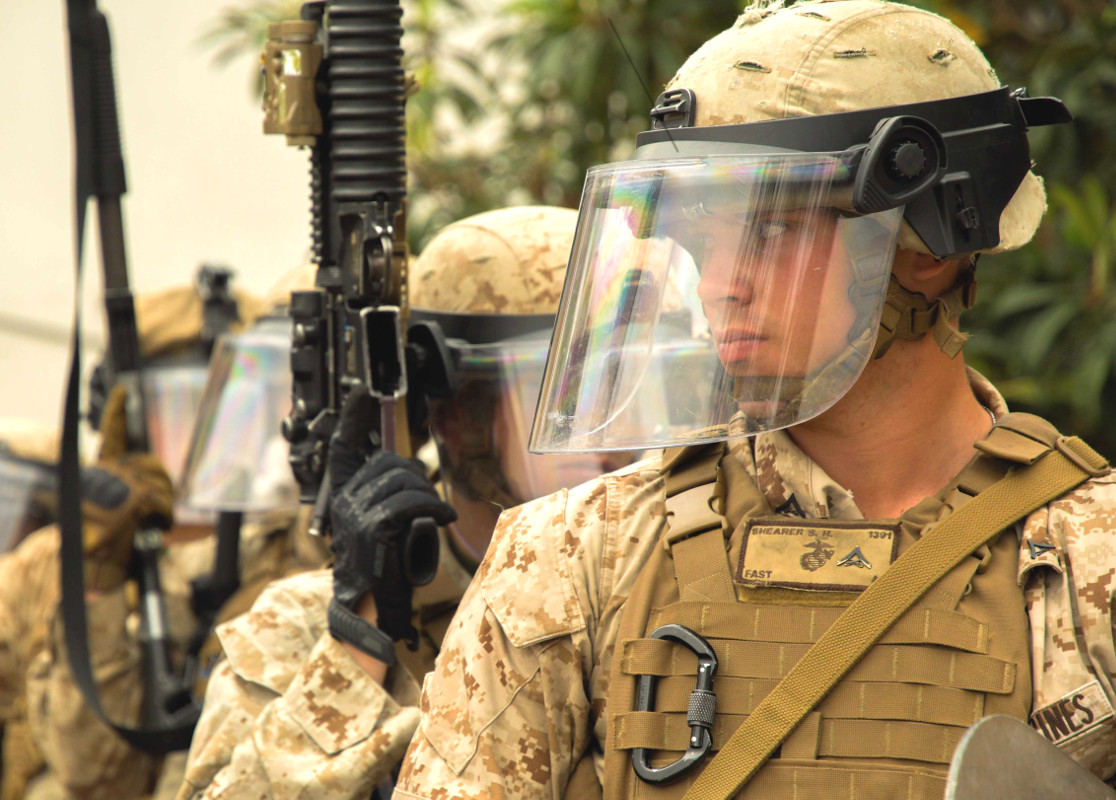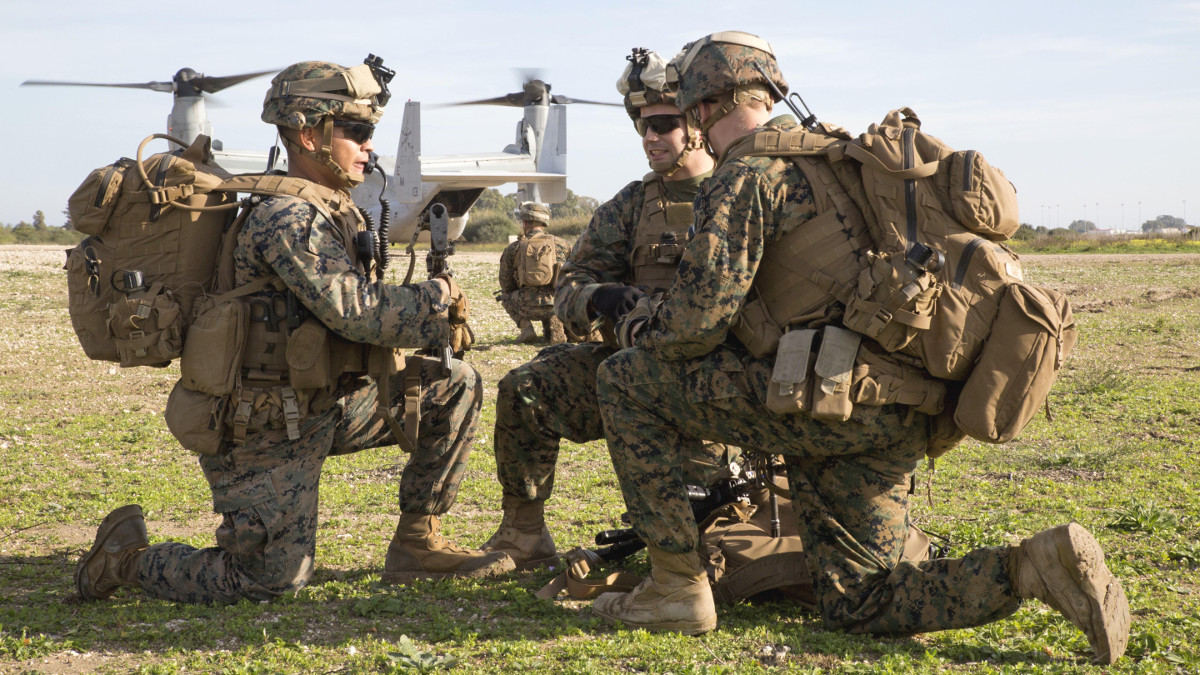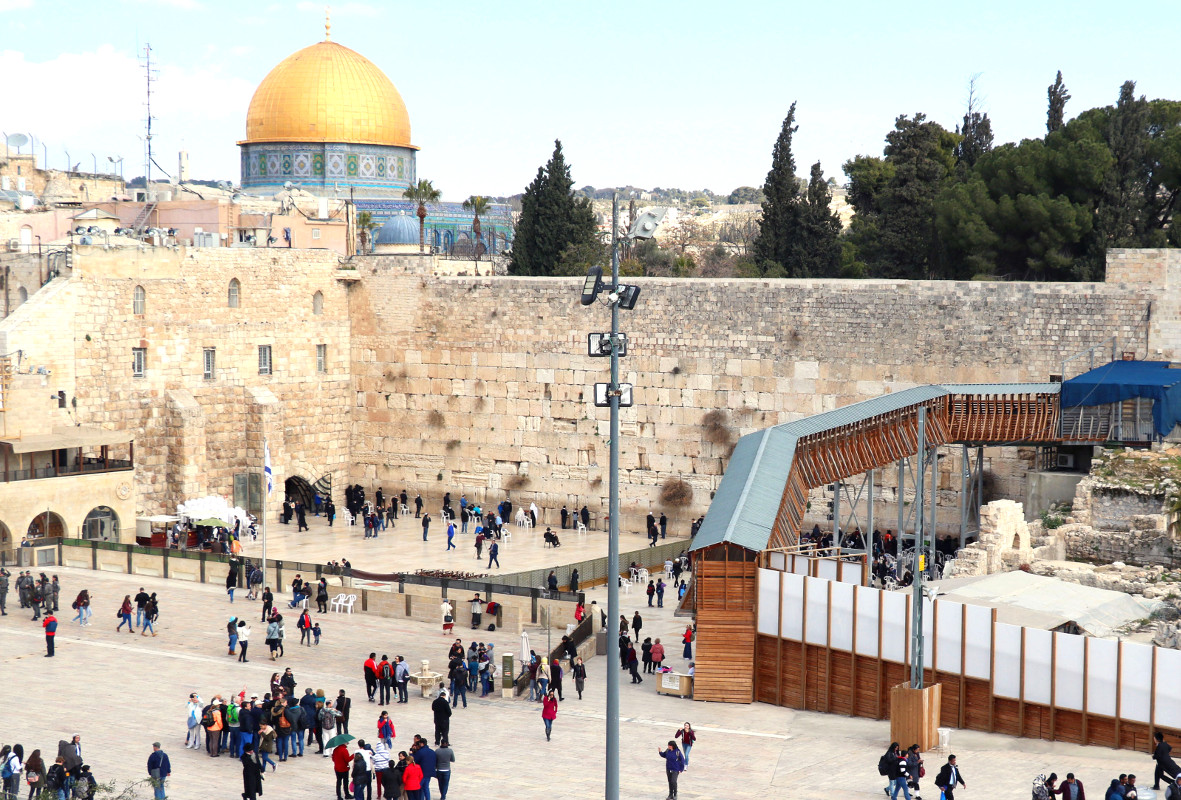The U.S. military has reportedly deployed additional troops throughout the Middle East ahead of President Donald Trump announcing that the United States has recognized Jerusalem as Israel’s official capital or that he is otherwise ordering the U.S. Embassy to relocate there from Tel Aviv. World leaders, experts, and observers all warn that the decision could fundamentally undermine the Israeli-Palestinian peace process and trigger widespread political unrest throughout majority Muslim countries.
On Dec. 5, 2017, U.S. Central Command, which has responsibility for American military activities throughout the Middle East and Central Asia – with the exception of Israel, which is the responsibility of U.S. European Command – told Foreign Policy’s Paul McLeary that it had “contingency plans in place.” The U.S. Marine Corps had dispatched elements of its Fleet Antiterrorism Security Teams, or FAST Companies, to provide additional security at American embassies across the Middle East, according to Fox News’ Jennifer Griffin. Trump is expected to officially detail the new policy on Dec. 6, 2017.
“We will move the American embassy to the eternal capital of the Jewish people, Jerusalem,” then candidate Trump told the American Israel Public Affairs Committee, or AIPAC, on March 21, 2016. “I want to give that [Israeli-Palestinian peace] a shot before I even think about moving the embassy to Jerusalem,” he told Mike Huckabee during an interview on the former Arkansas Governor’s Trinity Broadcasting Network in October 2017.
While Israel claims Jerusalem as its exclusive capital, the Palestinians want it for their own future state. This Old City within is home to some of the most holy sites in Judaism, Christianity, and Islam, some literally on top of each other, which has already made it a contentious location for millennia.

A 1995 law, unimaginatively called the Jerusalem Embassy Act, required the U.S. government to move the embassy into the contested city by 1999, but all American presidents since then have signed a waiver every six months delaying the order.
Though there are reports that he could push back the decision again, Trump increasingly seems to have decided that the potential for Israeli-Palestinian peace has run its course. It remains unclear whether if he will decide to recognize Jerusalem as Israel’s capital, move the U.S. Embassy there, or both. Either way, the message would be clear, that the United States understands the city to be the Israeli capital now and forever.
Absent a final, mutually agreed upon settlement of the issue between Israel and the Palestinian Authority, making the move is almost certain to provoke protests and potentially violent skirmishes at and near American government and facilities U.S. nationals own and operate in Israel and the occupied territories, the Middle East as a whole, and beyond. The reported U.S. military moves make it clear that they are well aware of this fact.
Since the infamous attack on the U.S. consulate in Benghazi, Libya, on Sept. 12, 2012, both the Pentagon and the State Department have implemented various contingency plans and bolstered the size and scope of available quick reaction forces around the globe. U.S. Central Command’s contingency planning is likely part of a standing and overarching U.S. military operating concept focused on the potential of widespread global unrest, nicknamed Operation New Normal, the exact details of which remain classified.
Still, as a result, it is almost certain that every one of the U.S. military’s regional commands has a broad plan in place to respond to widespread public disturbances and that they would coordinate with each other to make the best use of their respective resources. The FAST elements, which the Marine Corps enlarged after Benghazi, are a early line of this scalable defensive posture defense. The Marines already have a close relationship with the State Department and provide a standing guard at various Embassies and diplomatic posts.
First formed in 1987 in response to the rising threat of terrorist attacks, these units can rapidly deploy around the world to provide additional manpower and firepower to embassies and other diplomatic posts. Depending on the situation, they might bring along a variety of standard infantry arms, including .50 caliber M2 machine guns or 40mm Mk 19 automatic grenade launchers, as well as specialized riot control gear, such as non-lethal weapons.

There are standing FAST companies in the Middle East, Europe, and the Pacific region, as well as a number of teams on standby in the United States. The elements in Europe also have a historical relationship with posts in Africa and it is possible that some mixture of these Marines is now forward deployed from North Africa to Indonesia.
If the reaction to the U.S. government’s change in policy on Jerusalem proves to be too much for those teams to handle, the Marines also have dedicated crisis response elements for operations in Africa and the Middle East forward deployed in Rota, Spain and in Kuwait respectively. These Special Purpose Marine Air-Ground Task Forces have MV-22B Osprey tilt-rotors and KC-130 aerial tankers to help rush additional personnel across those regions in an emergency.

The Marine team in Kuwait, which has also included at times AV-8B Harrier jump jets, F/A-18 Hornet fighter jets, and EA-6B Prowler electronic warfare aircraft, has been heavily committed to the fight against ISIS in Iraq and Syria, though. It is unclear whether or not they are available for this new contingency.
In addition, after the Benghazi incident, the U.S. Army established rotating rapid response infantry companies for different global regions. These include the East Africa Response Force in Djibouti and another element forward deployed in Kuwait. On top of that, there are special operations forces positioned around the world that can quickly deploy to provide additional support if a crisis erupts. Commands can often call upon other permanently forward deployed and rotating ground forces to support contingency responses if absolutely necessary, as well.

U.S. Air Force aerial refueling tankers and transports, as well as U.S. Navy amphibious ships and other surface vessels are often prepositioned to help support these contingency deployments. Both services often have manned and unmanned intelligence, surveillance, and reconnaissance assets on hand, as well, in order to keep commanders on the ground abreast of changing circumstances and general events outside the gates of an embassy or other facility, as well as rapidly developing threats.
Various types of Air Force special operations aircraft that might take part in any response effort as they are often better suited to getting into harder to reach areas, especially if the situation has deteriorated beyond just intense protesting. By design, these units are trained to operate in remote locations with little direct support.

If an evacuation of any of these sites became necessary, U.S. military personnel on the ground and in the air would be essential in moving American government officials and civilians to safety. These units would coordinate with the State Department’s own security personnel and its other assets, including its own Air Wing, which could provide additional helicopters or fixed wing aircraft. Private contractors working for U.S. intelligence agencies and other U.S. government organizations might end up in the mix, along with local security forces, as happened during the Benghazi incident.
It remains to be seen exactly what the U.S. president’s policy decision will be and what form the subsequent reaction will look like. Palestinian Authority President Mahmoud Abbas “warned [Trump] of the dangerous consequences such a decision would have to the peace process and to the peace, security and stability of the region and of the world,” Nabil Abu Rudeina, his spokesperson, said according to Reuters.
This is likely to be an understatement. Traditional Muslim American allies in and around the Middle East, including NATO member Turkey and key counter-terrorism partner Jordan, have already publicly voiced opposition to the plan. Jordan, which acts as custodian for Muslim holy sites in Jerusalem’s Old City has a particularly keen interest in avoid a unilateral move that puts the city inside Israel.

The decision could also create tensions with other important U.S. partners around the world, including non-Muslim countries in Europe who support a final and lasting peace settlement between Israel and Palestine. It is also almost certain that some of America’s biggest opponents on the world state, chiefly Russia and Iran, will seize on the decision in attempts to challenge American influence both in the Middle East and elsewhere.
It is possible that Terrorist groups such as ISIS and Al Qaeda and their global factions could decide to step up attacks on American troops, U.S. interests, and other targets linked to the United States around the world.
“He’s going to continue having conversations with relevant stakeholders, but ultimately he’ll make what he thinks is the best decision for the United States,” White House Press Secretary Sarah Huckabee Sanders told reporters on Dec. 5, 2017. “The president, I would say, is pretty solid in his thinking at this point.”
The reported prepositioning of the initial wave of U.S. military response forces, as well as potential plans to deploy more if necessary, would seem to suggest that Trump’s thinking is to go ahead with moving the Embassy to Jerusalem in spite of the obvious concerns.
Contact the author: joe@thedrive.com
